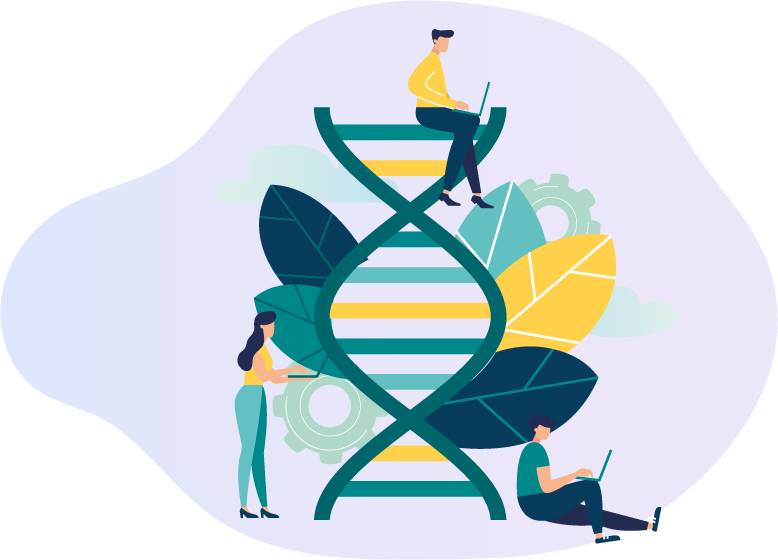Who's a Geneticist ?
A genome is a person or an organism’s complete set of DNA, including its genes. Genomics is the study focusing on the structure, evolution, mapping and editing of genomes. As a geneticist , you could work in healthcare, either as a genomic technologist or a clinical scientist. Your primary job will be to work with a patient’s DNA to identify genetic and genomic alterations that may be responsible for inherited and acquired diseases or conditions, such as cystic fibrosis or cancer.
Sounds like the perfect career for you? Get to know it better in the following sections!
What will you do?
Discover your Ideal future
Get expert guidance and mentorship towards your perfect fit.
Where will you work?
How do you get there?
What skills would you need?
How do you make it to the top ranks?
Intern
You will be tasked with shadowing other technicians or scientists. You will also be able to gain a lot of practical knowledge at this level.
Junior Scientist/Technician
You will be working with the most basic analyses. Your work will involve following protocols that have been set by the seniors.
Mid-Level Scientist/Technician
You will be working with all the analyses that go through the lab. You can also set new protocols for your juniors to follow with a senior’s approval.
Senior-Level Scientist/Technician
You are the one who oversees everything in the lab. You will be in charge of training new people while handling certain administrative roles.
Pursuing your career locally VS abroad
There are a lot of courses available for genomics in India. With more importance given to the field, there will be a higher demand for Geneticists in India over the coming decade. Depending on the college and the course you opt for, it will cost you anywhere between INR 70,000 – INR 10,00,000. Top colleges to pursue this course in India are SRM University, Bharath University, Aryabhatta Knowledge University, and Jawaharlal Nehru Centre for Advanced Scientific Research. While a graduation course is enough to land you an internship here, you should pursue a master’s in the field to enhance your knowledge in the field if you wish to settle abroad.
If you are planning to study abroad, you can start at a bachelor’s level. While choosing a university, try to look for one that offers you relevant placement upon the completion of your course. You can also finish your undergraduate studies in India and go abroad for master’s or doctorate degree. Studying abroad would cost you an average of INR 10,00,000-INR 50,00,000, depending on the university and course you opt for. The top countries to study and work as a geneticist are Switzerland, the USA and England.
How much would you get paid?
The pay scale usually depends on the country/organisation you work with, and the level you'll be working at.
What are your career options?
Discover your Ideal future
Get expert guidance and mentorship towards your perfect fit.









